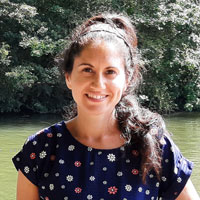Have you been toying with the idea of a novel for some time now, and don’t know whether to take the plunge and write it? Or perhaps you’ve taken a writing course and are wondering whether you’re ready to take the next step.
Sometimes all it takes is an idea, a pen, and a piece of paper (or a keyboard and a computer). You don’t need anything else. But if you’ve been looking for signs, then read further!
I’ll always remember when I first had the inkling to write. I wrote a bit of fiction in my teens (I dabbled in cozy mystery and paranormal romance), but it wasn’t until much, much later in my adult life that I rekindled my love of reading and writing and decided to give it a go. Around the same time, I also decided to train as a developmental editor, and with that, a new career path began to take shape.
So, if you have a gnawing feeling, an instinct, an urge that nags at you every day, or haunts your sleep, perhaps it’s time to check if you are, in fact, ready to write. In this informative, but also not-so-serious blog post, I’ll share six signs indicating you need to grab a pen or your keyboard and write that novel.
Sign 1: You’ve Started Taking Notes
You’ve had stories in your mind for a while now, and you thought they’d live there forever. But recently, something changed. You bought a notebook and started scribbling. And scribbling more. You take your notebook everywhere, and if a new idea comes up while you’re on the train or eating out, you jot it down. Or maybe you use an app on your phone. I have lots of notebooks, but I like to use Google’s Keep to quickly record ideas, especially when I’m out and about. I’ve heard Evernote is great too. Either way, you’re getting your ideas (or some of them) out of your mind, and that, my friend, is a first sign that you’re ready to write.
Sign 2: You’ve Named Your Characters
Your characters are no longer nameless, shapeless creatures or people living in your head. They may have a job or occupation, they look a certain way, and most importantly, they have a name. Even if it’s a temporary one! Writers are very good at changing their characters’ names a gazillion times throughout the writing cycle. Of course, when it comes to planning and outlining your novel, you need to think about things like goals and motivations. But if you’ve never written anything before, that’s not usually what comes to mind first. Thinking in terms of goals, needs, wounds, life lessons, etc. is a skill you learn as a writer. But the fact your characters have a name is a great sign that you need to write your (and their) story.
Sign 3: You’ve Done Some Research
You’ve started reading books about writing. Maybe you’ve Googled “how to write a novel” or looked for writing courses or inspiration. You’ve looked into book coaching. Or perhaps you’ve investigated setting, characters, or more practical questions, like “how to fight with a sword” (fantasy) or “where to place clues and red herrings in a detective story”. Whatever the case, you’ve gone one step further than simply ‘thinking’ or ‘dreaming’ about your story. You’re actively looking for ways to bring it to life.
Sign 4: Your Stories Won’t Leave You Alone
When you wake up, you think about your stories. When you get dressed, you imagine various scenarios. When you eat, it’s the same thing. You are curious about your characters and what happens next. You can’t wait to explore your world and your themes. You find yourself daydreaming about characters, plotlines, or settings and feel a burning desire to flesh them out in words. You go about your day forgetting important tasks, meetings, or activities because your stories just won’t leave you alone. And when you go to bed… the ideas are always there, haunting you, nagging at you, making your mind swirl. Heck, you even dream about your characters! It’s time to put an end to this madness and grab a notebook or open a Word document on your computer. You know you want to.
Sign 5: You Write ‘the End’ Everywhere
Your grocery lists have ‘The End’ at the bottom. Your to-do lists? Same. For every list and document you create, you type or write ‘The End’. What other signs are you waiting for? Your fingers are itching to write. This is not the end, but the beginning of your writing journey. This is ‘The Start’. You are more than ready to write a fiction story.
Sign 6: You’ve Taken a Writing Class
For the more serious among you, you’ve gone one step further and taken a writing course. That’s fantastic! It’s already a great achievement, and it shows your determination and willingness to learn. You know that writing a novel isn’t easy, and that you will face challenges and setbacks along the way. But instead of letting them discourage you, you see them as opportunities to grow and hone your craft. You are absolutely ready to write a novel.
If these signs resonate with you, congratulations! You are ready to write a novel. Don’t let anything stop you from pursuing your dream.
So, gather your thoughts, sharpen your pencil, and let the words flow onto the page.
Remember: the only way to write a novel is to write it.





